ఆగ . 26, 2025 02:20 Back to list
Professional Embroidery Machines: Precision for T-Shirts & More
Introduction to Professional Embroidery Machine Technology
In the dynamic world of textile manufacturing and bespoke apparel, the demand for high-precision, high-efficiency embroidery solutions is paramount. Modern industrial operations increasingly rely on advanced machinery to meet stringent quality standards and rapid production schedules. A professional embroidery machine represents the pinnacle of this technological evolution, offering unparalleled accuracy, speed, and versatility. These sophisticated systems are engineered to handle complex designs across a wide array of materials, from delicate silks to robust denim, revolutionizing how garments, accessories, and promotional items are embellished. Their computerized controls ensure consistent stitch quality and enable intricate multi-color designs, making them indispensable for businesses aiming for both artistic excellence and operational efficiency.
The market for industrial embroidery equipment is characterized by continuous innovation, driven by advancements in automation, software integration, and material science. Manufacturers are constantly pushing the boundaries of what is possible, introducing features such as enhanced data connectivity, predictive maintenance analytics, and energy-efficient designs. This not only improves productivity but also contributes to more sustainable manufacturing practices. The ability of these machines to produce intricate designs at high volumes makes them a cornerstone for sectors ranging from high-fashion to corporate branding, where detailed and durable embroidery is a key differentiator.
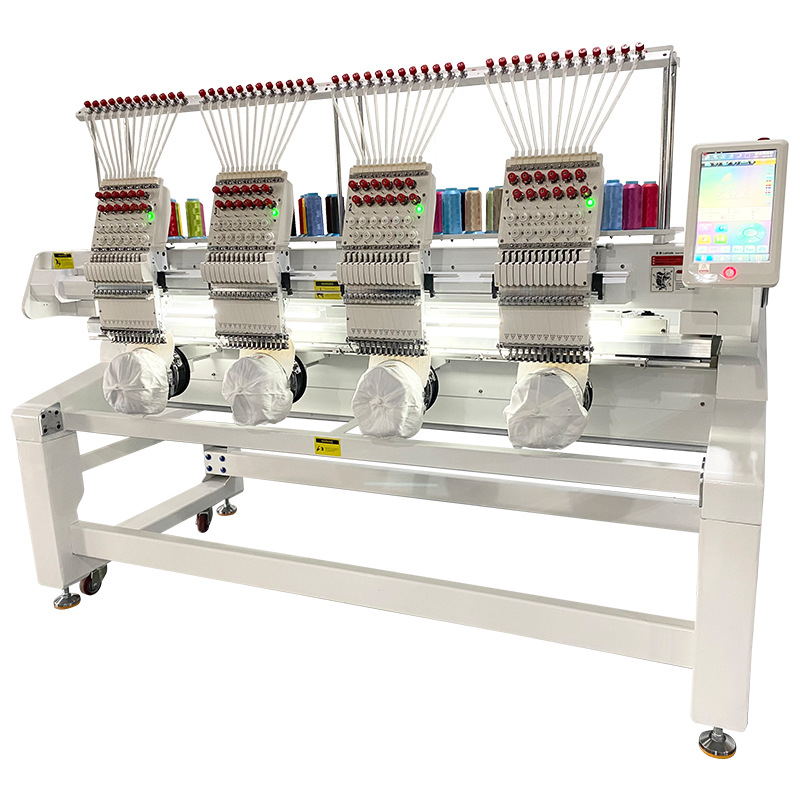
Figure 1: High-precision computerized multi-head embroidery machine in operation.
Industry Trends and Market Dynamics
The global embroidery machine market is experiencing significant growth, fueled by several key trends. Customization and personalization are no longer niche demands but mainstream consumer expectations, driving the need for versatile and efficient embroidery solutions. The rise of e-commerce platforms has democratized access to custom apparel and promotional products, creating new opportunities for businesses equipped with sophisticated embroidery technology. Furthermore, advancements in automation and software integration are leading to machines that are easier to operate, more reliable, and capable of higher throughput.
- Increased Automation: Modern systems integrate advanced robotics and AI for automated hooping, thread trimming, and design loading, minimizing manual intervention and maximizing output.
- Software Integration: Seamless connectivity with CAD/CAM software for design creation, digitizing, and production management streamlines workflows and reduces errors.
- Eco-friendly Practices: Growing emphasis on energy efficiency, reduced material waste, and the use of sustainable threads and fabrics influences machine design and operational guidelines.
- Multi-functional Capabilities: Machines that can perform various embellishment techniques, such as sequin attachment, cording, and boring, are gaining traction, expanding creative possibilities and market reach.
- On-Demand Manufacturing: The shift towards smaller batch sizes and rapid turnaround times requires flexible and quick-changeover capabilities, which multi-head, multi-needle machines are ideally suited for.
The demand for bespoke **t shirt embroidery machine** capabilities is particularly robust, reflecting the popularity of personalized branding and casual wear. Businesses from small print shops to large apparel manufacturers are investing in technology that can efficiently produce high-quality embroidered garments.
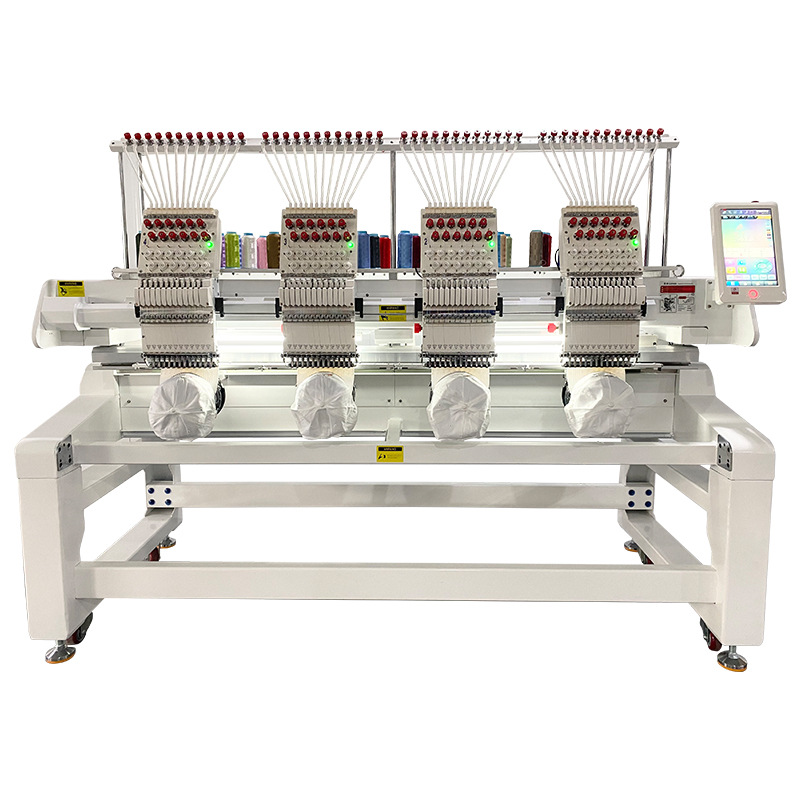
Figure 2: Close-up of embroidery precision on fabric.
Technical Specifications of Professional Embroidery Machines
A key differentiator for a **professional embroidery machine** lies in its robust technical specifications, which dictate its performance, reliability, and versatility. Understanding these parameters is crucial for B2B decision-makers.
Product Specifications: Embroidery Machines Computerized 4 head 12 needle
| Feature | Specification |
|---|---|
| Model Type | Computerized Multi-Head Embroidery Machine |
| Number of Heads | 4 Heads |
| Number of Needles per Head | 12 Needles |
| Maximum Speed | 1000-1200 stitches per minute (SPM) |
| Embroidery Area (Flat) | Up to 400x450mm per head (variable by hoop) |
| Embroidery Area (Cap) | 70x270mm (wide cap frame) |
| Control System | High-definition LCD Touch Screen (e.g., Dahao 10-inch) |
| Memory Capacity | Up to 100 million stitches, 1000 designs |
| Design Input Format | DST, DSB, etc. (compatible with most digitizing software) |
| Motor System | Servo Motors (X/Y axes), Stepper Motors (main shaft) |
| Automatic Features | Thread Trimming, Color Change, Thread Break Detection |
| Power Supply | AC220V/50Hz (Customizable for different regions) |
| Connectivity | USB, Network (LAN) |
| Machine Dimensions (Approx.) | 3500mm x 1200mm x 1700mm |
| Weight (Approx.) | 1200-1500 kg |
The robust construction, often utilizing high-grade steel and precision-machined aluminum alloys, ensures stability and reduces vibration, which is critical for achieving consistent stitch quality at high speeds. Advanced control systems, often powered by industry-leading components like Dahao or Panasonic, provide intuitive operation and precise control over every aspect of the embroidery process, including stitch length, density, and tension.
Detailed Process Flow: Manufacturing a Professional Embroidery Machine
The creation of a high-performance **professional embroidery machine** involves a meticulous, multi-stage manufacturing process, emphasizing precision engineering and rigorous quality control. This ensures durability, accuracy, and longevity, often exceeding 10-15 years of operational service life under proper maintenance.
-
Material Sourcing & Preparation:
High-quality raw materials are selected, including structural steel for the machine frame, specialized aluminum alloys for moving parts (e.g., pantograph), and high-grade plastics for covers and non-critical components. Precision-engineered electronic components from reputable suppliers are also procured.
-
Frame Fabrication (Casting/Welding):
The robust main frame, critical for vibration dampening and stability, is typically constructed from heavy-gauge steel. This involves precise cutting, forming, and welding processes. For certain critical structural components, high-strength casting might be employed to achieve optimal rigidity and reduce stress points. After fabrication, frames undergo stress relief and surface treatment for corrosion resistance.
-
Precision Machining (CNC):
Numerous components, such as needle bars, presser feet, hooks, and pantograph guides, require extremely tight tolerances. These parts are produced using advanced CNC (Computer Numerical Control) machining centers, ensuring precise dimensions and smooth finishes. This stage is critical for the machine's overall stitch quality and longevity.
-
Surface Treatment & Finishing:
Metal components undergo various surface treatments, including powder coating for durability and aesthetics, anodizing for aluminum parts to enhance corrosion resistance, and precision grinding/polishing for critical contact surfaces.
-
Component Assembly:
Skilled technicians meticulously assemble mechanical sub-assemblies (e.g., head mechanisms, pantograph systems, thread feeding units) and integrate electrical and electronic components (e.g., control boards, motors, wiring harnesses, touch screens). This stage demands high precision to ensure all moving parts operate in perfect synchronization.
-
Software & Firmware Integration:
The proprietary control software and firmware are loaded onto the machine's computer system. This includes calibrating motor parameters, setting up network connectivity, and configuring user interface settings.
-
Calibration & Initial Testing:
Each machine undergoes comprehensive calibration for needle bar timing, hook timing, thread tension, and pantograph movement. Initial run tests are conducted to check basic functionality, noise levels, and vibration. This process often adheres to internal quality standards that exceed minimum industry benchmarks.
-
Quality Assurance & Performance Testing:
Machines are subjected to rigorous quality assurance checks, including:
- Endurance Testing: Running for extended periods (e.g., 24-48 hours) at maximum speed to simulate real-world conditions.
- Stitch Quality Analysis: Detailed inspection of stitch formation, consistency, and tension across various materials and designs.
- Functional Verification: Testing all automated features (thread trimming, color change, thread break detection, cap/flat conversion).
- Safety Compliance: Ensuring adherence to international safety standards like CE, UL, and local electrical codes.
-
Final Inspection & Packaging:
A final visual and operational inspection confirms that the machine meets all specifications and aesthetic standards. It is then carefully packed for shipment, often in custom-built wooden crates to prevent damage during transit.
Target industries for these advanced machines include textiles and apparel (fashion, uniforms), promotional products, automotive interiors, home furnishings, and specialized industrial applications requiring high-precision fabric embellishment. The meticulous manufacturing process ensures advantages in typical application scenarios such as energy saving through optimized motor control, and enhanced corrosion resistance of critical components contributing to extended service life, reducing total cost of ownership.
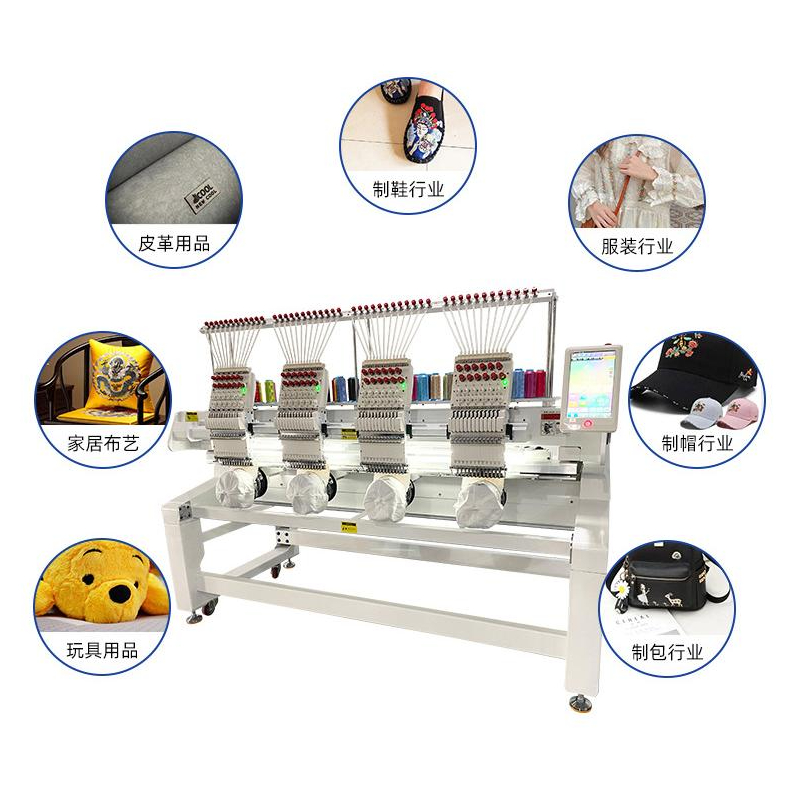
Figure 3: Internal view of machine components, highlighting precision engineering.
Application Scenarios and Technical Advantages
The versatility of a **professional embroidery machine** allows it to excel in a multitude of industrial and commercial applications, providing significant technical and operational advantages.
Typical Application Scenarios:
- Apparel Manufacturing: Embellishing ready-to-wear garments, including intricate designs on fashion items, corporate uniforms, and customized sportswear. This includes high-volume production of logos on shirts, jackets, and caps.
- Promotional Products: Branding hats, bags, towels, and other merchandise for marketing campaigns, events, and corporate gifting. The multi-head capacity is crucial for efficient batch production.
- Automotive Industry: Creating specialized embroidery for car interiors, such as logos on seat covers, floor mats, and headrests, demanding high durability and aesthetic quality.
- Home Furnishings: Decorating linens, draperies, upholstery, and decorative pillows with complex patterns, adding a premium touch to interior designs.
- Specialty & Bespoke Services: Enabling small businesses and custom design studios to offer unique, high-value embroidery services for niche markets, including artistic textile creations.
Key Technical Advantages:
- High Productivity: Multi-head configurations (e.g., 4 heads) allow for simultaneous embroidery of multiple items, drastically increasing output for bulk orders. With 12 needles per head, complex designs requiring numerous color changes can be executed without manual intervention.
- Precision & Consistency: Advanced servo and stepper motor control systems ensure accurate stitch placement and consistent tension, resulting in superior quality embroidery, even on challenging materials. The minimum stitch length and density are highly controllable.
- Versatility: Equipped with various hooping systems (flat, cap, cylindrical), these machines can handle a diverse range of items and garment types, from flat fabric panels to finished caps and sleeves.
- Durability & Reliability: Constructed with heavy-duty components and designed for continuous operation, these machines offer extended service life and require minimal downtime, ensuring a high return on investment.
- User-Friendly Interface: Intuitive touch-screen control panels simplify design loading, parameter adjustments, and real-time monitoring of the embroidery process, reducing operator training time.
- Energy Efficiency: Modern industrial embroidery machines often incorporate energy-saving features, such as efficient motor designs and standby modes, reducing operational costs.
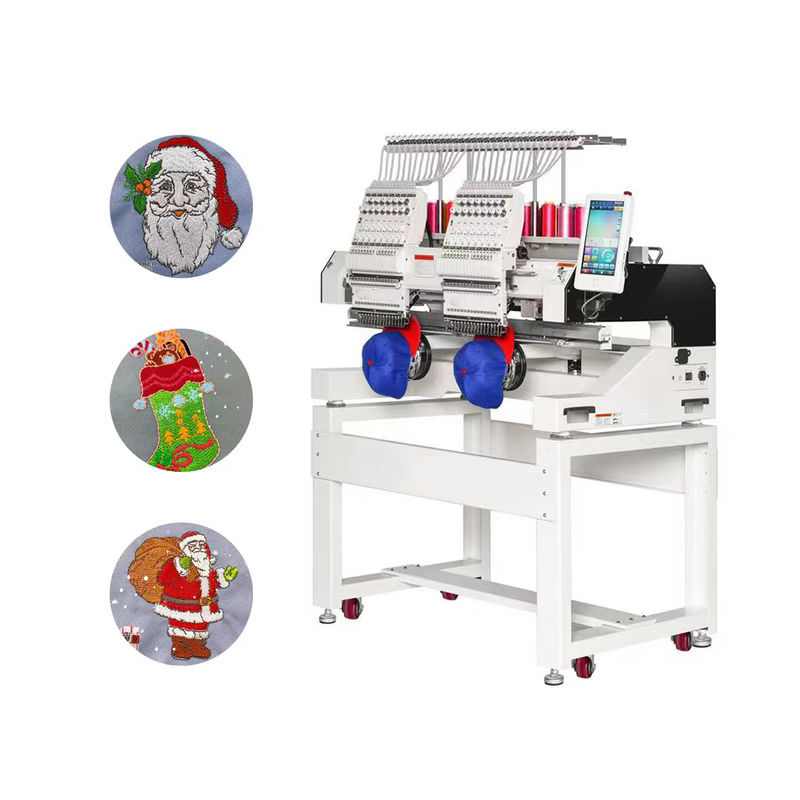
Figure 4: A multi-head machine efficiently embroidering multiple items simultaneously.
Vendor Comparison and Market Positioning
The market for industrial embroidery machines is competitive, with several key players offering a range of solutions. When evaluating a **professional embroidery machine**, it is essential to compare vendors based on critical criteria such as technology, support, and total cost of ownership.
Key Factors for Vendor Comparison:
- Technology & Innovation: Look for vendors that consistently integrate the latest advancements in control systems, motor technology, and software.
- Build Quality & Durability: Assess the materials used, manufacturing standards (e.g., ISO 9001 certified facilities), and projected service life.
- After-Sales Support & Service Network: The availability of technical support, spare parts, and on-site servicing is crucial for minimizing downtime.
- Customization & Flexibility: The ability to adapt machines to specific production needs, such as specialized hooping or custom software features.
- Cost-Effectiveness: Beyond the initial purchase price, consider energy consumption, maintenance costs, and resale value.
Comparison of Industry-Leading Professional Embroidery Machines (Illustrative Data):
| Feature/Vendor | XTPFSM (4 Head, 12 Needle) | Competitor A (4 Head, 9 Needle) | Competitor B (6 Head, 15 Needle) |
|---|---|---|---|
| Heads x Needles | 4x12 | 4x9 | 6x15 |
| Max Speed (SPM) | 1200 | 1000 | 1100 |
| Control System | Dahao 10" Touch Screen | Proprietary 8" LCD | Pantheon 12" Touch Screen |
| Embroidery Area (mm) | 400x450 | 360x400 | 500x400 |
| Motor Type | Servo (X/Y), Stepper (Main) | Stepper (All) | Servo (All) |
| Connectivity | USB, LAN | USB | USB, LAN, Wi-Fi |
| Certifications | CE, ISO 9001 | CE | CE, UL |
| Typical Price Range (USD) | $$ | $ | $$$ |
*Note: Price ranges are illustrative and depend on configurations and regional factors. XTPFSM typically offers competitive pricing with robust features, balancing performance and investment.
The XTPFSM "Embroidery Machines Computerized 4 head 12 needle" offers a strategic balance of high productivity, advanced control, and flexible application, making it a compelling choice for businesses needing efficient, multi-color embroidery. Its 12-needle configuration per head is a distinct advantage over 9-needle competitors for designs requiring a broader color palette without frequent thread changes, enhancing workflow efficiency.
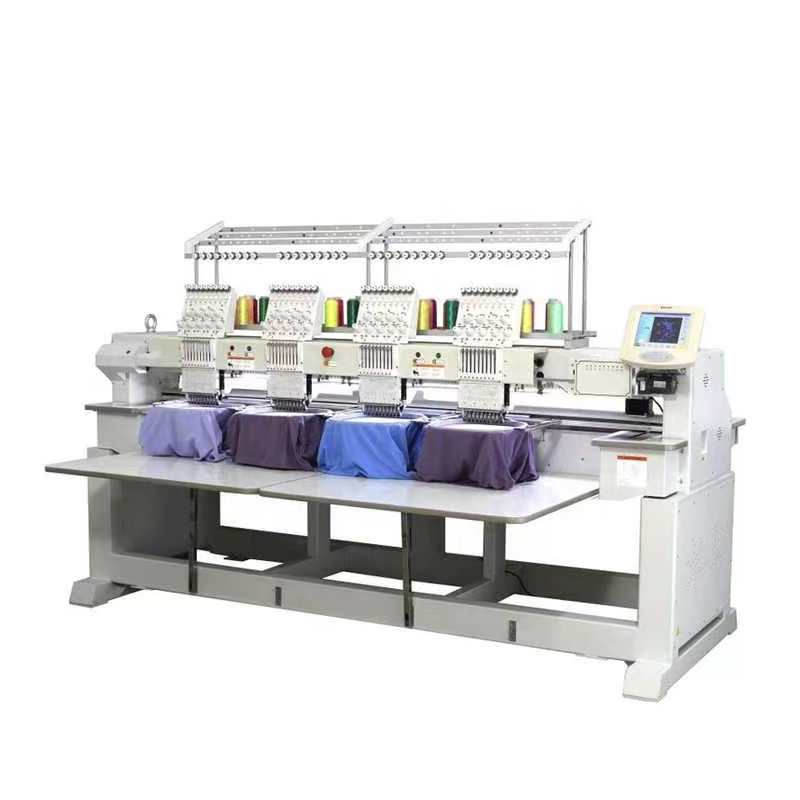
Figure 5: User interface of a modern computerized embroidery machine.
Customized Solutions and Application Case Studies
Recognizing that every business has unique requirements, providers of a **professional embroidery machine** often offer customized solutions to optimize operational efficiency and output.
Customization Options:
- Specialized Hooping & Frames: Custom frames for unusual garment sizes, specific product shapes (e.g., shoe uppers, luggage), or extra-large embroidery areas.
- Software Integration: API access for integration with existing ERP/MES systems, or custom software features for unique design management and production tracking.
- Automated Material Handling: Integration with conveyor systems or robotic loaders for high-volume, continuous production lines.
- Multi-functional Modules: Addition of sequin devices, cording attachments, or boring tools to expand embellishment capabilities.
- Voltage & Power Configuration: Tailoring electrical specifications to match local grid standards and industrial requirements.
Application Case Studies:
Case Study 1: Large-Scale Apparel Manufacturer (Partner Client: Global Uniforms Inc.)
Global Uniforms Inc., a leading supplier of corporate and medical uniforms, faced challenges in meeting rapidly increasing demand for branded apparel with intricate logos. They invested in five XTPFSM 4-head, 12-needle machines. The machines' high speed (1200 SPM) and 12-needle capacity significantly reduced production time for multi-color logos. The robust build and reliable operation minimized downtime, contributing to a 30% increase in monthly output. The client lauded the machines for their consistent stitch quality and the responsive technical support provided, ensuring smooth integration into their existing production lines. This directly translated to fulfilling larger contracts and improving customer satisfaction.
Case Study 2: Boutique Fashion House (Partner Client: Artisanal Threads Co.)
Artisanal Threads Co. specializes in high-end, custom-embroidered fashion pieces. They required a machine that offered extreme precision for delicate fabrics and complex, artistic designs. The XTPFSM 4-head, 12-needle machine, with its advanced control system and fine-tuneable tension settings, allowed them to achieve intricate detailing on silk and chiffon, previously considered challenging. The machine's ability to handle custom hoop sizes was particularly beneficial for their unique design requirements. The investment enabled them to expand their product line and significantly reduce the lead time for bespoke orders, enhancing their reputation for quality and innovation.
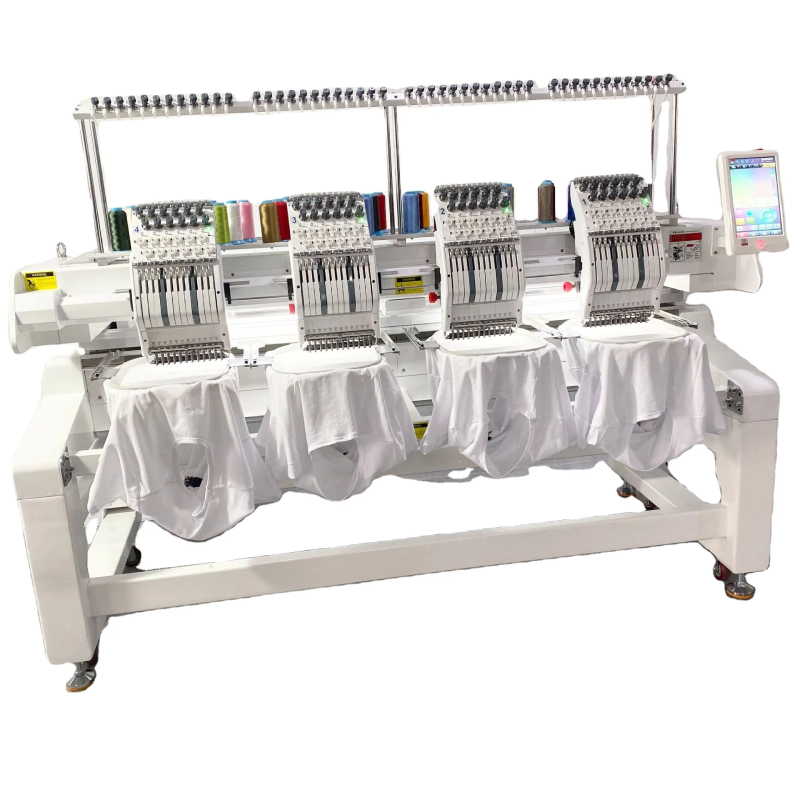
Figure 6: Example of a custom embroidery design on a finished product.
Trustworthiness and Support Information
Frequently Asked Questions (FAQ):
Q1: What is the average lifespan of a 4-head, 12-needle **professional embroidery machine**?
A1: With proper maintenance and regular servicing, these industrial-grade machines are designed for a service life of 10 to 15 years, often longer, ensuring a substantial return on investment.
Q2: What kind of fabric materials can this machine embroider?
A2: Our machines are highly versatile and can embroider a wide range of materials, including cotton, polyester, denim, leather, silk, chiffon, and various blends, making them ideal for apparel, caps, bags, and more.
Q3: Is training provided for operating the machine?
A3: Yes, comprehensive operational and maintenance training is available both on-site and remotely to ensure your team can maximize the machine's capabilities efficiently and safely.
Q4: What file formats are compatible with the control system?
A4: The control system supports industry-standard embroidery file formats such as DST and DSB, ensuring compatibility with most digitizing software.
Lead Time & Fulfillment Details:
- Standard Lead Time: Typically 30-45 business days from order confirmation, subject to current production schedules and customization requirements.
- Express Fulfillment: Expedited options available for urgent orders; please contact our sales team for feasibility and pricing.
- Shipping: Global shipping services provided, with options for sea freight (standard) or air freight (expedited). All machines are securely crated and insured.
Warranty Commitments:
- Standard Warranty: 1-year warranty on major mechanical and electronic components, excluding wear-and-tear parts.
- Extended Warranty: Options for extended warranty coverage are available for purchase.
- Service & Parts: Guarantee of readily available spare parts for at least 10 years post-purchase.
Customer Support Information:
Our commitment extends beyond the sale of a **professional embroidery machine**. We provide comprehensive support to ensure your long-term success.
- Technical Support Hotline: Available 24/7 for immediate assistance with operational queries or troubleshooting.
- Online Resources: Access to a dedicated portal featuring manuals, video tutorials, and software updates.
- On-site Service: A global network of certified technicians is available for on-site installation, maintenance, and repair services.
- Dedicated Account Management: Each client is assigned a dedicated account manager for personalized support and strategic consultation.
Conclusion
The selection of a **professional embroidery machine** is a critical strategic decision for businesses in the textile and apparel sectors. By understanding the intricate manufacturing processes, detailed technical specifications, diverse application scenarios, and the robust support infrastructure, B2B stakeholders can make informed choices that drive efficiency, quality, and profitability. Modern multi-head, multi-needle computerized machines represent an investment in advanced manufacturing capabilities, enabling businesses to meet evolving market demands for high-quality, customized, and high-volume embroidery with confidence.
References
- Textile World. "Advanced Embroidery Technologies Drive Industry Growth." [Industry Publication].
- International Organization for Standardization (ISO). "ISO 9001 Quality Management Systems." [Standardization Body].
- National Council of Textile Organizations (NCTO). "US Textile Industry Economic Impact Report." [Trade Association].
- ResearchGate. "Automation in Textile Manufacturing: A Review." [Academic Journal].
- Dahao Computer Corp. "Industrial Embroidery Control Systems Technical Specifications." [Manufacturer Datasheet].
-
Professional Embroidery Machines: Precision for T-Shirts & More
NewsAug.26,2025
-
6 Head Embroidery Machine for Professional & Commercial Production
NewsAug.25,2025
-
Computerized T-Shirt Embroidery Machine | Fast, Flat, & Affordable
NewsAug.24,2025
-
Cheap Commercial Embroidery Machine for Sale | Automatic 12-Needle
NewsAug.23,2025
-
Affordable 15 Needle Embroidery Machine for Pro Flat & Auto
NewsAug.22,2025
-
Pro T-Shirt Embroidery Machine: Multi-Head, 12 & 15 Needle
NewsAug.21,2025

Copyright © 2025 Xingtai Pufa Trading Co., Ltd All Rights Reserved. Sitemap | Privacy Policy
